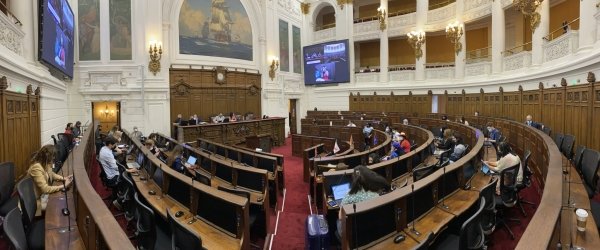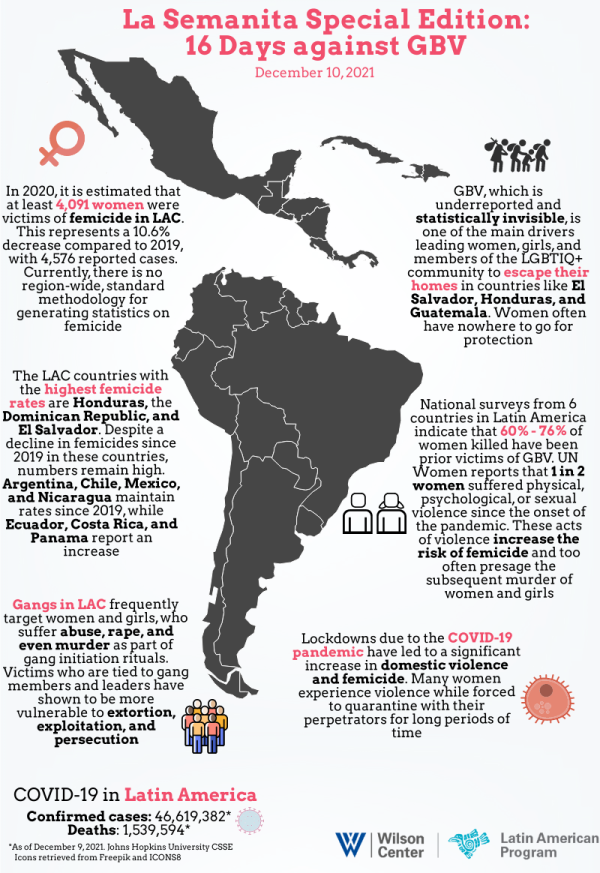Chile’s Constitutional Convention: A Bumpy Start, Much Work Ahead
 |
By Richard Sanders
Chile’s constitutional convention is now over five months into its mandate to overhaul the country’s fundamental document. Chileans decided by referendum to rewrite their constitution following extended massive protests in 2019; these belied the longstanding perception of a Latin American success story, slowly but steadily moving towards first world status in a consolidated democracy. The convention is dominated by representatives of relatively new leftist parties and civil society independents, with seats reserved for indigenous peoples. The center-right and center-left groupings which have governed Chile since its return to democracy are present but in a distinctly minority position.
Lengthy fights over procedures, including an effort from the left to eliminate provisions aimed at forcing consensus by requiring super-majorities on proposed elements of a new constitution, have cost the convention a significant measure of public support. As it moves from considering procedures to taking up issues of substance, it is challenged to rebuild confidence and draft a document with practical solutions for Chile’s governance challenges. It is doing so at a time when the country, weary from the pandemic and its economic fallout, is in the midst of a presidential election run-off marked by sharp divisions. A new constitution that commands support from a broad spectrum of Chilean society could provide real boost for the troubled country. But one that is perceived as narrow and ideological or simply ineffective could only add to Chile’s current turbulence.
A New Constitution is the Solution?
The decision to hold a constitutional convention arose from growing dissatisfaction with the political and economic elite in Chile — despite the country’s undeniable success in creating a stable and export-oriented economy, which allowed for a quadrupling of gross domestic product from 1993 to 2020 and a significant drop in poverty since 1990. Nonetheless, over the last few years, despite tax reforms and additional social spending, discontent has grown, fueled by a persistent sense that the gains of economic growth have not been equally shared.
Like much of Latin America and the Caribbean, Chile has struggled to contend with its status in one of the most unequal regions in the world, and the contrast between different social and economic strata is significant. According to a recent article in The Economist, which cites an earlier study by The Lancet in 2019— “life expectancy at birth for a woman born in the poorest neighborhood of Santiago is nearly 18 years lower than for a woman born in the richest neighborhood, a much larger gap than in the other five Latin American cities surveyed, including Mexico City and Buenos Aires.” The dramatic nature of inequality in Chile is evident in the following comparison: although the World Bank in 2018 reported that per capita gross domestic product was over $25,000, roughly half of the Chilean population earned less than $523 per month.
New political and economic issues surrounding the environment, gender equality, and concern for indigenous rights have also come to the fore. Proponents of a convention had argued that the existing constitution, which dates from the country’s dictatorship under General Augusto Pinochet (though modified on several occasions under democratically elected governments), is inadequate to today’s social demands. The idea of a new constitution eventually acquired almost totemic status among those profoundly dissatisfied with the status quo, as previous calls for constitutional reform began in earnest during the presidency of Michelle Bachelet in 2015.
For the full article click here.
|









